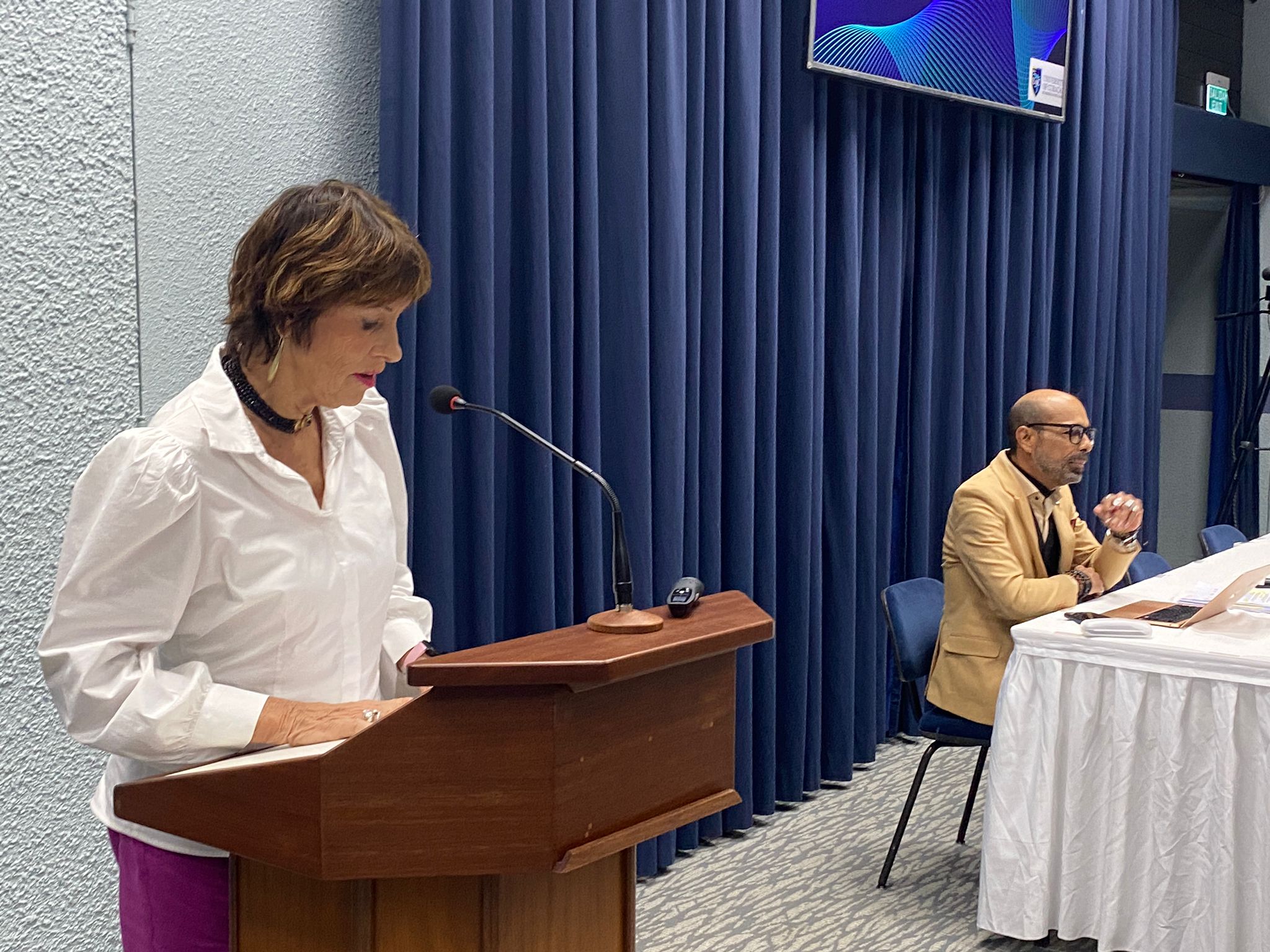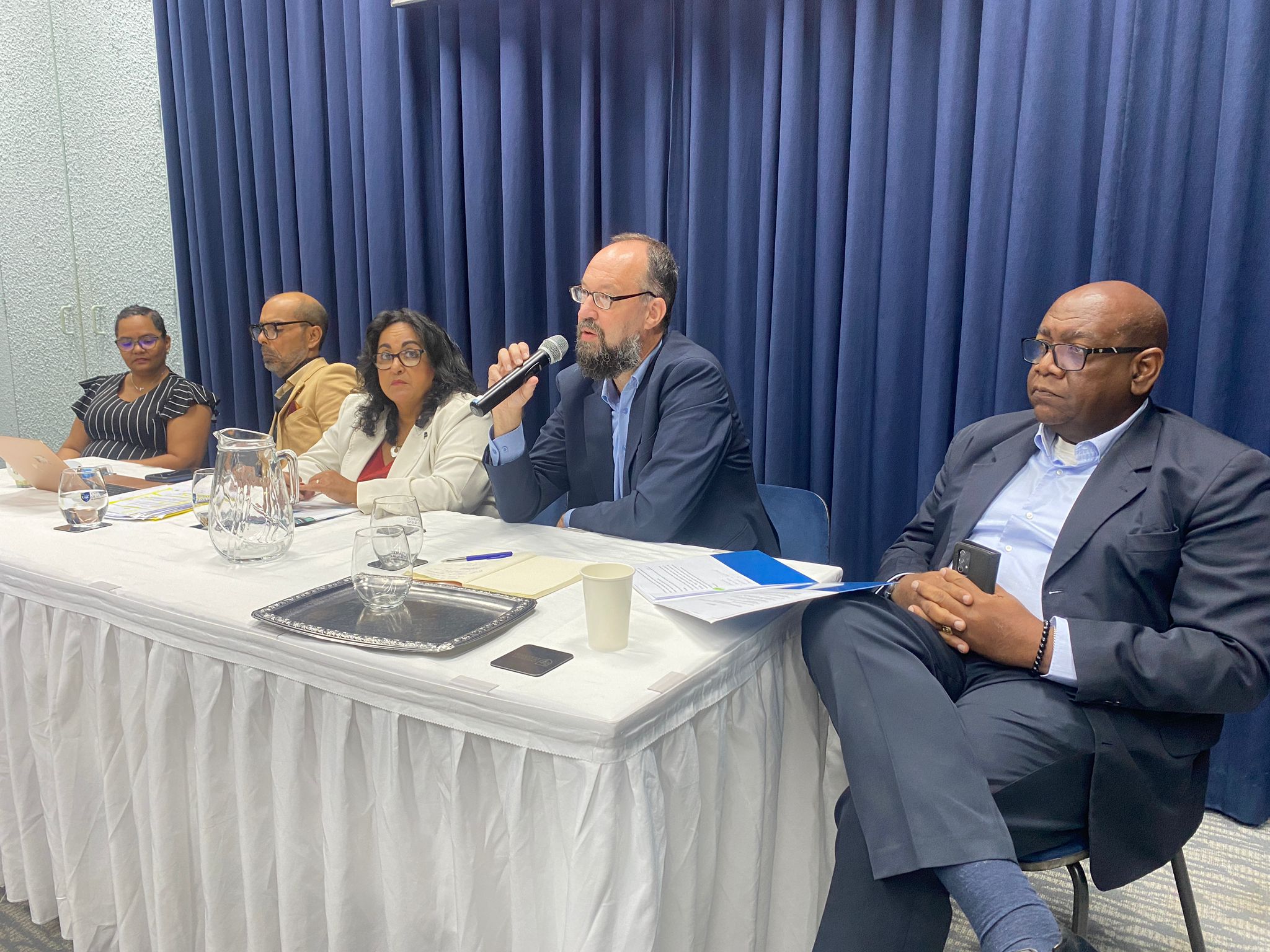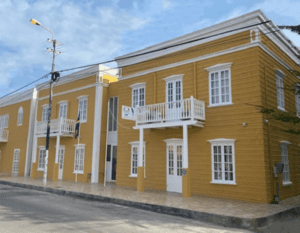Press release
Paving the way for a holistic approach to an inclusive labor market in Curaçao
Willemstad, September 5, 2023 – On August 31, 2023, the Social and Economic Council of Curaçao (SER) organized a symposium titled ‘Advancing Inclusive Labor Market in Curaçao: Exploring Innovative Approaches’, in collaboration with the International Labour Organization (ILO), the University of Curaçao (UoC), the United Nations High Commissioner for Refugees (UNHCR), and Human Rights Defense Curaçao (HRDC). The symposium aimed to explore an inclusive vision for Curaçao, both at the local level and in a broader international context.
The event was opened by Mr. Drs. Raul Henriquez, Director/General Secretary of the SER. In his address, he emphasized the importance of recognizing and respecting the individual identity of all residents of Curaçao, regardless of their origin, legal status, or personal circumstances. He also underscored the need for a strong commitment to creating a just environment where every citizen and resident can live and work with dignity, equal rights, and respect. The ultimate goal is to establish a labor market in Curaçao that is not only inclusive on paper but also genuinely humane, fair, and sustainable.
Dr. Francis de Lanoy, the Rector Magnificus of UoC, presented his vision during his lecture titled ‘Bridging the Gap between Education and the Labor Market.’ He emphasized that education is the primary tool to combat poverty and reduce inequality. However, he pointed out the shortcomings of the current education system in promoting inclusivity. Dr. De Lanoy provided valuable recommendations, including the large-scale introduction of vocational training in collaboration with a certification agency, highlighting the value of vocational training, promoting technical and social entrepreneurship, involving employers in workforce development, and improving the employability of vocational graduates through competency-based education and the teaching and application of 21st-century skills. Additionally, he advocated for the introduction of Associate degrees in tertiary education in Curaçao, which would contribute to an education system better aligned with the needs of the labor market and promoting inclusivity and equal opportunities.
The director of HRDC, Mrs. Ieteke ‘Inchi’ Witteveen, emphasized the existing fragmentation in addressing current challenges and called for a holistic approach. She stressed the importance of clearly defining what Curaçao, as a young nation wants and how it intends to establish an inclusive labor market. Furthermore, it was highlighted that an inclusive labor market is essential for the desired development, but breaking dependency chains is necessary. The responsibility for this lies not solely with the government but with everyone.
The keynote speaker of the symposium, Mr. John Bliek, senior specialist in sustainable business development for the Caribbean region at the ILO, emphasized that the goal of an inclusive labor market is to create a fairer and just society, where migrants are integral participants. He highlighted the challenges faced by migrants in the Latin American and Caribbean (LAC) region, particularly women who often work in the informal economy or find themselves in vulnerable positions on the labor market. Mr. Bliek emphasized that the host country should focus on enhancing the skills of migrants, leading to benefits such as a more effective response to labor market demand and supply, a wider range of available skills, and a positive contribution to the economy when migrants work in the formal sector.
Mrs. Melissa Johns, senior development advisor from the Regional Bureau for the Americas of UNHCR, contributed to the discussion with scientifically based information and shared successful models for an inclusive labor market from initiatives in Mexico, Brazil, and Ecuador. These models resulted in benefits for both migrants, including increased employment and participation in the formal sector, as well as poverty reduction, and for the host country, such as increased economic activities.
Finally, Jeanette Bonet, interim CEO of the Curaçao Investment & Export Promotion Agency (CINEX), approached the theme from an entrepreneurial perspective. She emphasized the development of entrepreneurial skills and promotion within the framework of Curaçao’s National Export Strategy (NES), which focuses on six economic pillars aiming for an annual increase of 5 percent in Gross Domestic Product (GDP). In her presentation she underscored the importance of economic growth and the role of entrepreneurship in promoting an inclusive labor market. Jeanette also emphasized the need for improved coordination in promoting entrepreneurship.
The symposium provided participants with an opportunity for in-depth discussions with the speakers on crucial issues related to an inclusive labor market in Curaçao. For more information click here.

Mr. John Bliek

Mrs. Ieteke Witteveen, HRDC

The panel


